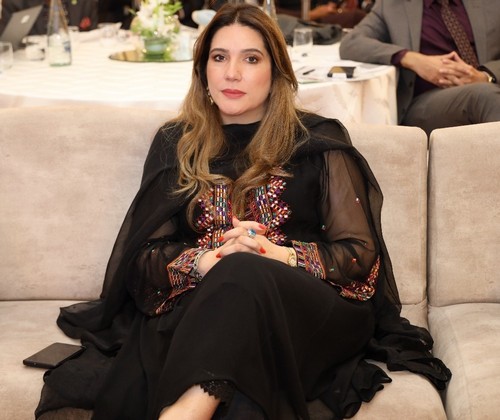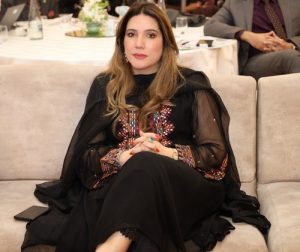Jahan Ara Manzoor Wattoo to champion Pakistan’s voice on social protection reforms at World Bank’s Global Forum in Washington

Liaquat Ali
Islamabad: Pakistan has secured a significant opportunity to shape the global conversation on social protection, as Jahan Ara Manzoor Wattoo, Vice Chairperson of the Punjab Social Protection Authority (PSPA) and Chair of the LIS Women Leaders for Social Protection Network, departs for Washington D.C. to represent the country at the Global Forum on Coalitions for Reforms. The high-profile forum will take place on September 16–17, 2025, at the World Bank Headquarters and will convene leading policymakers, international experts, academics, and development partners to discuss how governments can strengthen and scale up social protection reforms in the face of global challenges.
The Global Forum is expected to become a landmark gathering, with participants engaging in delivery labs, panel discussions, and strategy-focused sessions. Key themes will include leadership in reform processes, the role of cooperation in delivering results, and the use of strategic communication to build public support for reforms. For Pakistan, this event provides an important platform to highlight its domestic innovations in social protection and to amplify the role of women leaders in shaping inclusive policies.
On September 18, 2025, Jahan Ara Wattoo will lead Pakistan’s delegation in a pivotal meeting with the World Bank’s senior team. Pakistan will present on the theme “Climate Change and Adaptive Social Protection”, showcasing how the country is responding to the mounting challenges of extreme weather events and climate-induced vulnerabilities. The presentation will not only underline the urgent risks posed by climate change but also propose adaptive strategies, such as flexible social protection systems, provincial coordination, and targeted assistance for vulnerable communities.
Speaking ahead of her departure, Jahan Ara Wattoo stressed the importance of Pakistan’s participation in such forums. “This is not just about representing Pakistan—it is about ensuring that the voices of vulnerable communities, particularly women, are part of the global policymaking conversation. Serving as Chair of the LIS Women Leaders for Social Protection Network is both a privilege and a historic opportunity for Pakistan,” she said.
The LIS Women Leaders for Social Protection Network, which Pakistan currently chairs, was established with the support of GIZ, the World Bank, and other development partners. It is the first global platform dedicated to advancing women’s leadership in social protection, providing opportunities for knowledge-sharing, cross-border collaboration, and amplifying the visibility of women reformers across regions. Under Jahan Ara Wattoo’s leadership, the network has been organizing thematic sessions and driving an agenda that highlights the crucial role of women in designing and implementing reforms that address both gender and social equity.
Wattoo will also use the platform to showcase PSPA’s flagship initiative — the Inter-Provincial Social Protection Forum. The initiative, widely recognized as a model of collaborative governance, has successfully enhanced coordination among provinces, improved joint policy-making, and driven collective actions in Pakistan’s social protection sector. Presenting it at the Global Forum will position Pakistan as a knowledge contributor rather than just a recipient of international expertise.
Analysts note that her participation reflects not only Pakistan’s commitment to strengthening social protection systems but also its willingness to contribute ideas and solutions to the global community. With climate change emerging as a defining challenge of the century, Pakistan’s experience—particularly as one of the countries hardest hit by catastrophic floods in recent years—offers valuable lessons for other vulnerable nations.
By placing women’s leadership at the forefront of social protection, Jahan Ara Manzoor Wattoo’s representation marks a symbolic and practical breakthrough for Pakistan: it underscores the country’s evolving role in global policy spaces while reinforcing the importance of gender inclusion in reform processes.

